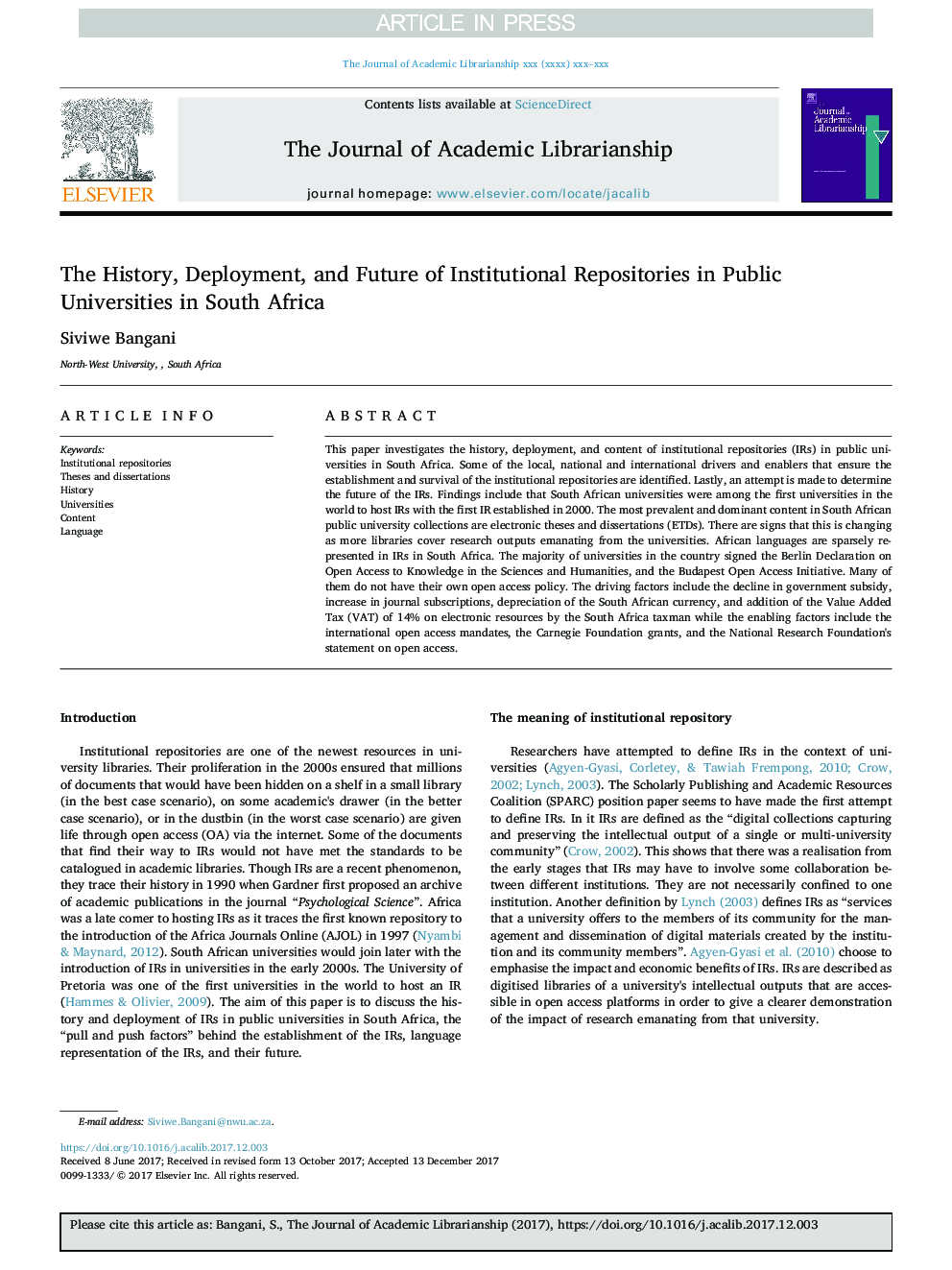| Article ID | Journal | Published Year | Pages | File Type |
|---|---|---|---|---|
| 6842119 | The Journal of Academic Librarianship | 2018 | 13 Pages |
Abstract
This paper investigates the history, deployment, and content of institutional repositories (IRs) in public universities in South Africa. Some of the local, national and international drivers and enablers that ensure the establishment and survival of the institutional repositories are identified. Lastly, an attempt is made to determine the future of the IRs. Findings include that South African universities were among the first universities in the world to host IRs with the first IR established in 2000. The most prevalent and dominant content in South African public university collections are electronic theses and dissertations (ETDs). There are signs that this is changing as more libraries cover research outputs emanating from the universities. African languages are sparsely represented in IRs in South Africa. The majority of universities in the country signed the Berlin Declaration on Open Access to Knowledge in the Sciences and Humanities, and the Budapest Open Access Initiative. Many of them do not have their own open access policy. The driving factors include the decline in government subsidy, increase in journal subscriptions, depreciation of the South African currency, and addition of the Value Added Tax (VAT) of 14% on electronic resources by the South Africa taxman while the enabling factors include the international open access mandates, the Carnegie Foundation grants, and the National Research Foundation's statement on open access.
Related Topics
Social Sciences and Humanities
Social Sciences
Education
Authors
Siviwe Bangani,
